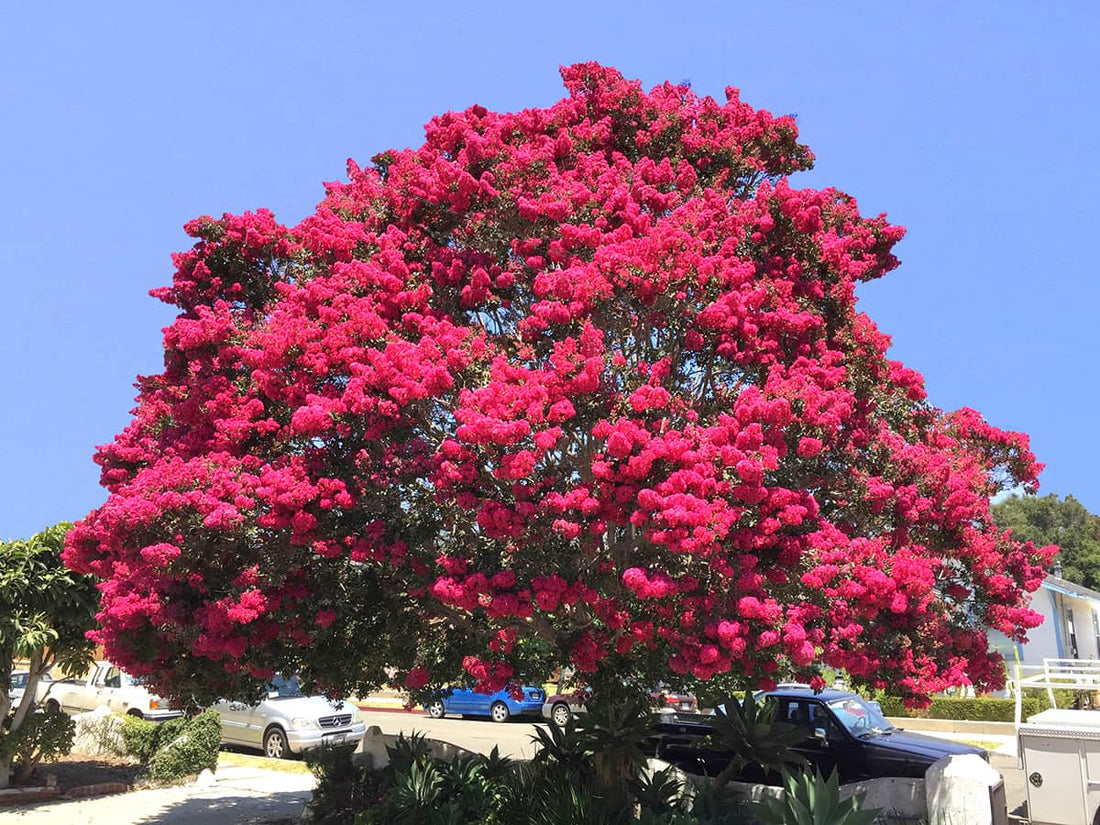

The Myrtle Tree (Myrtus communis), renowned for its delicate beauty, rich fragrance, and symbolic significance, has enchanted humanity for centuries. With a history steeped in myths, medicinal uses, and environmental benefits, this eve Read more
Trending
Trees for Corporates
Myrtle Tree: The Timeless Symbol of Love, Healing, and Eco-Friendly El
You may also like
Corporate Plantations
Myrtle Tree Uses
The Myrtle Tree is a versatile gem, offering aromatic leaves for essential oils, berries for culinary delights, and lush greenery for stunning ornamental landscapes—a triple threat in the plant world.
Myrtle Tree Benefits
With its air-purifying foliage and medicinal properties, the Myrtle Tree brings elegance and wellness together, proving that beauty and function can go hand in hand.
Myrtle Tree Symbolism
A timeless emblem of love and peace, the Myrtle Tree has been cherished in weddings, mythology, and gardens as a plant that nurtures hearts and homes alike.
Myrtle Tree Leaves
Packed with essential oils, Myrtle leaves are nature’s remedy for respiratory health, skincare, and relaxation, blending practicality with aromatic luxury.
Myrtle Tree Growth Conditions
This sun-loving, drought-tolerant beauty thrives in Mediterranean climates, sandy soils, and gardens that value elegance without the need for constant attention.
Myrtle Tree History
With roots in ancient Greece and Rome, the Myrtle Tree has been a favorite of poets, priests, and gardeners, adding elegance to both literature and landscapes.
Myrtle Tree in Skincare
The essential oils from Myrtle leaves work wonders for glowing skin, offering antibacterial, anti-inflammatory, and antioxidant benefits in every drop.
Myrtle Tree Berries
These tiny powerhouses bring a burst of flavor to Mediterranean dishes and a healthy dose of antioxidants to teas and desserts.
Myrtle Tree Environmental Impact
This eco-friendly plant cleans the air, enriches the soil, and supports biodiversity, all while looking stunning in your garden or community.
Myrtle Tree in Mythology
Associated with Aphrodite and Venus, the Myrtle Tree has long symbolized love, beauty, and immortality, making it a plant steeped in legendary charm.
Myrtle Tree Ornamental Value
Its evergreen leaves, delicate white flowers, and aromatic presence make the Myrtle Tree a landscaper’s dream for elegant, low-maintenance beauty.
Myrtle Tree Medicinal Uses
Myrtle has been a staple in traditional medicine, offering remedies for coughs, colds, and skin issues, proving that this timeless tree has a practical side too.
FAQ
What is the Myrtle Tree?
It’s an evergreen beauty with aromatic leaves, delicate flowers, and berries that combine elegance, healing properties, and eco-friendly charm—a timeless favorite for gardens and traditions.
Why is the Myrtle Tree symbolic of love?
With ties to Aphrodite and Venus, the Myrtle Tree has long represented love, beauty, and immortality, making it a staple in weddings and romantic lore.
What are the medicinal uses of the Myrtle Tree?
Its leaves and berries are used in traditional medicine for respiratory health, skincare, and digestive support, proving it’s as healing as it is beautiful.
Can I grow a Myrtle Tree at home?
Absolutely! It’s a low-maintenance wonder that thrives in sunny climates and well-drained soil, adding timeless charm to your garden or patio.
What are Myrtle leaves used for?
Myrtle leaves are rich in essential oils and are used in aromatherapy, teas, skincare, and even cooking, offering wellness with a side of aroma.
What does the Myrtle Tree’s fruit taste like?
Its berries have a sweet, slightly spicy flavor, often used in Mediterranean cuisine to enhance desserts, sauces, and herbal teas.
Where does the Myrtle Tree grow best?
Native to the Mediterranean, it thrives in sunny, warm climates with sandy, well-drained soil—a plant that loves a little sunshine and neglect.
What are the environmental benefits of the Myrtle Tree?
It purifies air, enriches soil, and supports pollinators, making it an eco-friendly addition to gardens and urban landscapes.
How is the Myrtle Tree used in skincare?
Its essential oils are antibacterial and anti-inflammatory, offering natural remedies for glowing skin, acne treatment, and soothing sensitive areas.
What role does the Myrtle Tree play in mythology?
Associated with goddesses of love and beauty, the Myrtle Tree represents immortality, purity, and passion, earning it a legendary status in ancient stories.
Is the Myrtle Tree good for landscaping?
Yes! Its evergreen leaves, fragrant flowers, and compact growth make it a landscaper’s dream, ideal for hedges, patios, and ornamental gardens.
How do you care for a Myrtle Tree?
Provide plenty of sunlight, occasional watering, and well-drained soil, and this elegant tree will thrive, rewarding you with beauty and utility.
?
?
?
Most Popular
Connect with us
-
👥 Corporates
If you are looking for:
- 🌲 Tree Plantation Events
- 📊 CSR Projects
📧 corporate@growbilliontrees.com
📞 +91 9699723523
💬 +91 9325931304 WhatsApp (Only)
🕒 Mon - Sat | 10am - 7pm IST
-
🧩 Tree Plantation NGOs
If you are looking for:
- 💰 Financial Assistance
- 🤝 Operational Support
📧 support@growbilliontrees.com
📞 +91 9699723523
💬 +91 9325931304 WhatsApp (Only)
🕒 Mon - Sat | 10am - 7pm IST
-
🌼 Individuals
If you are looking for:
- 👥 Group Tree Plantation Drive
- 🌳 Bulk Tree Plantation
📞 +91 9699723523
💬 +91 9325931304 WhatsApp (Only)
🕒 Mon - Sat | 10am - 7pm IST





















